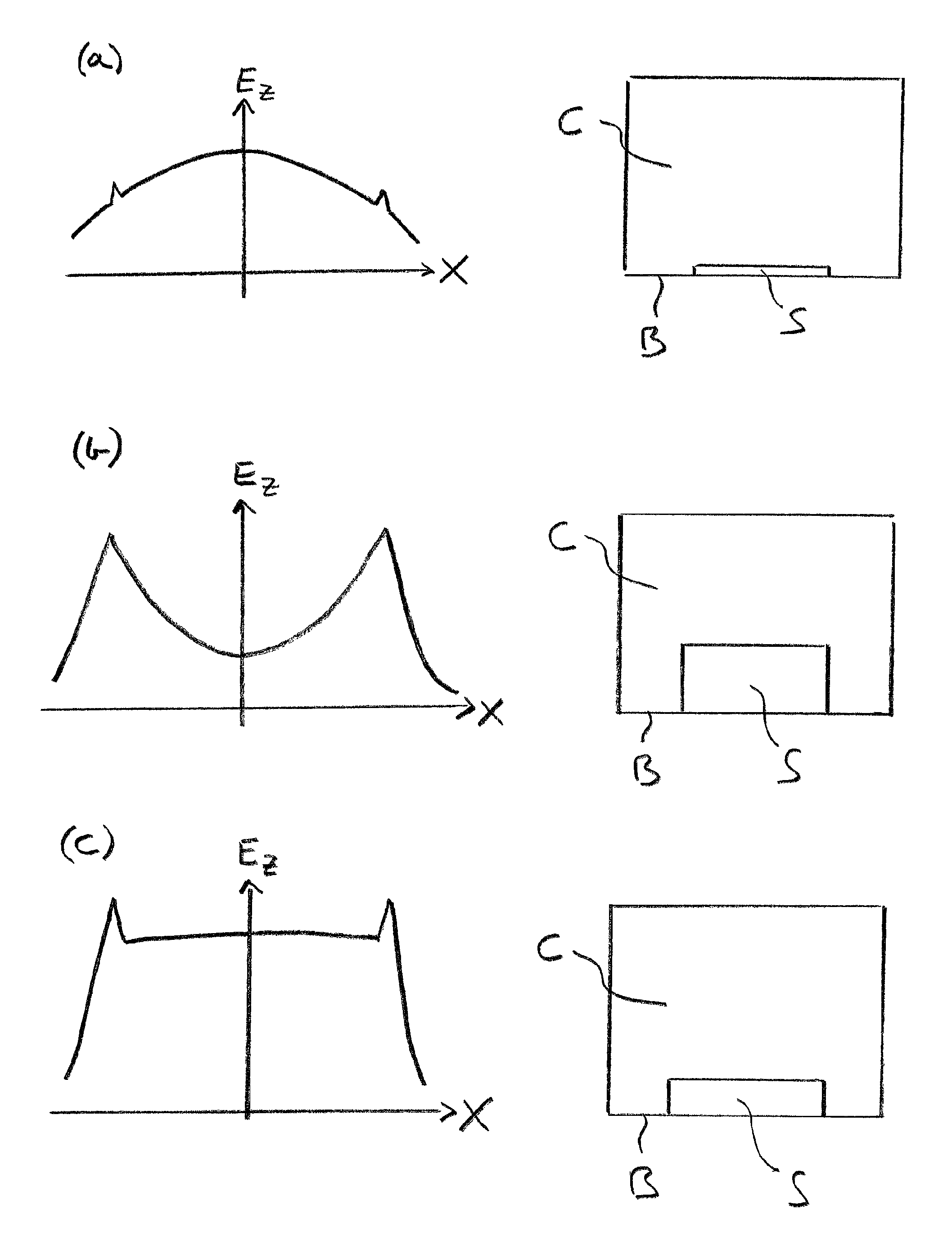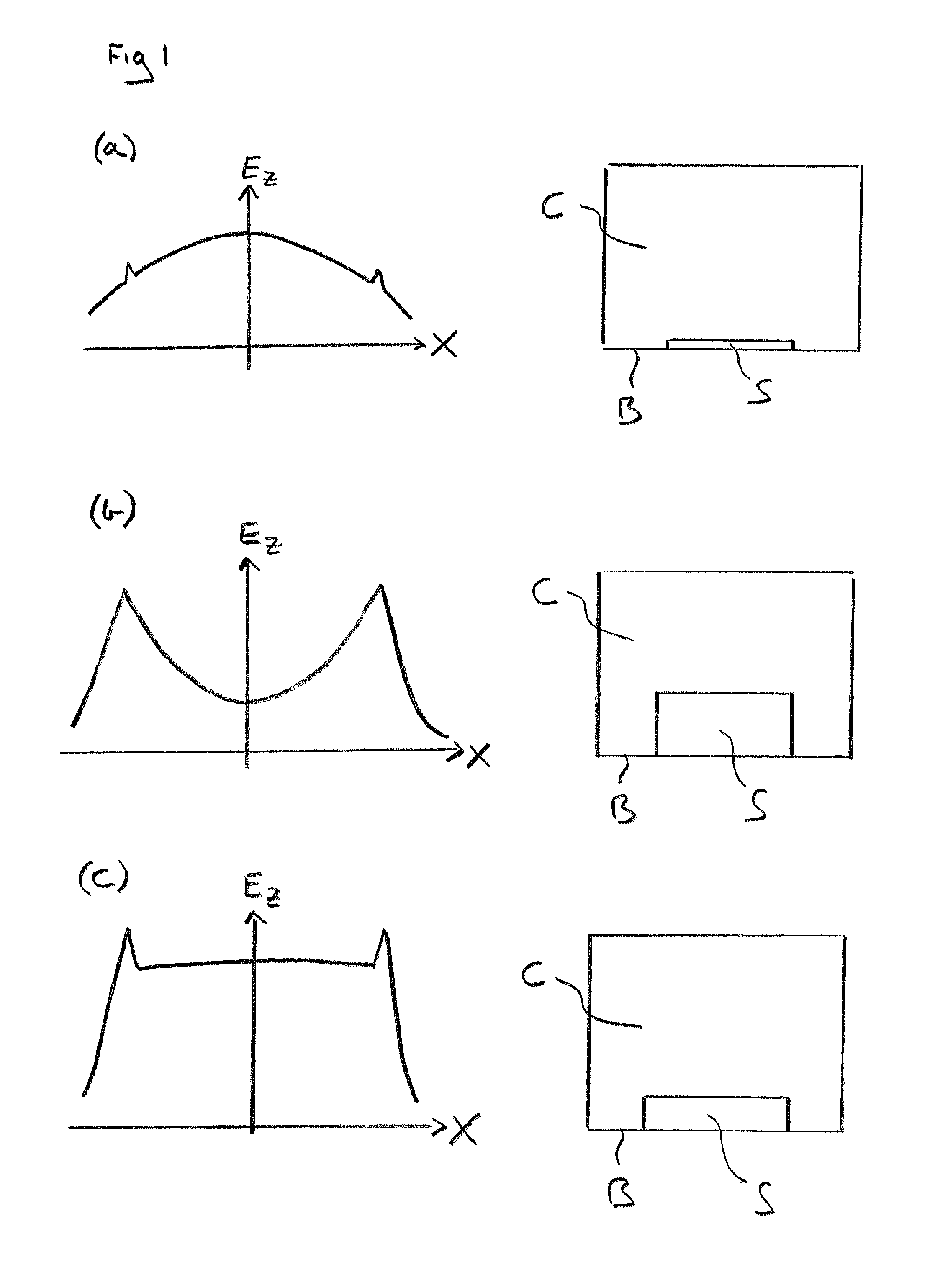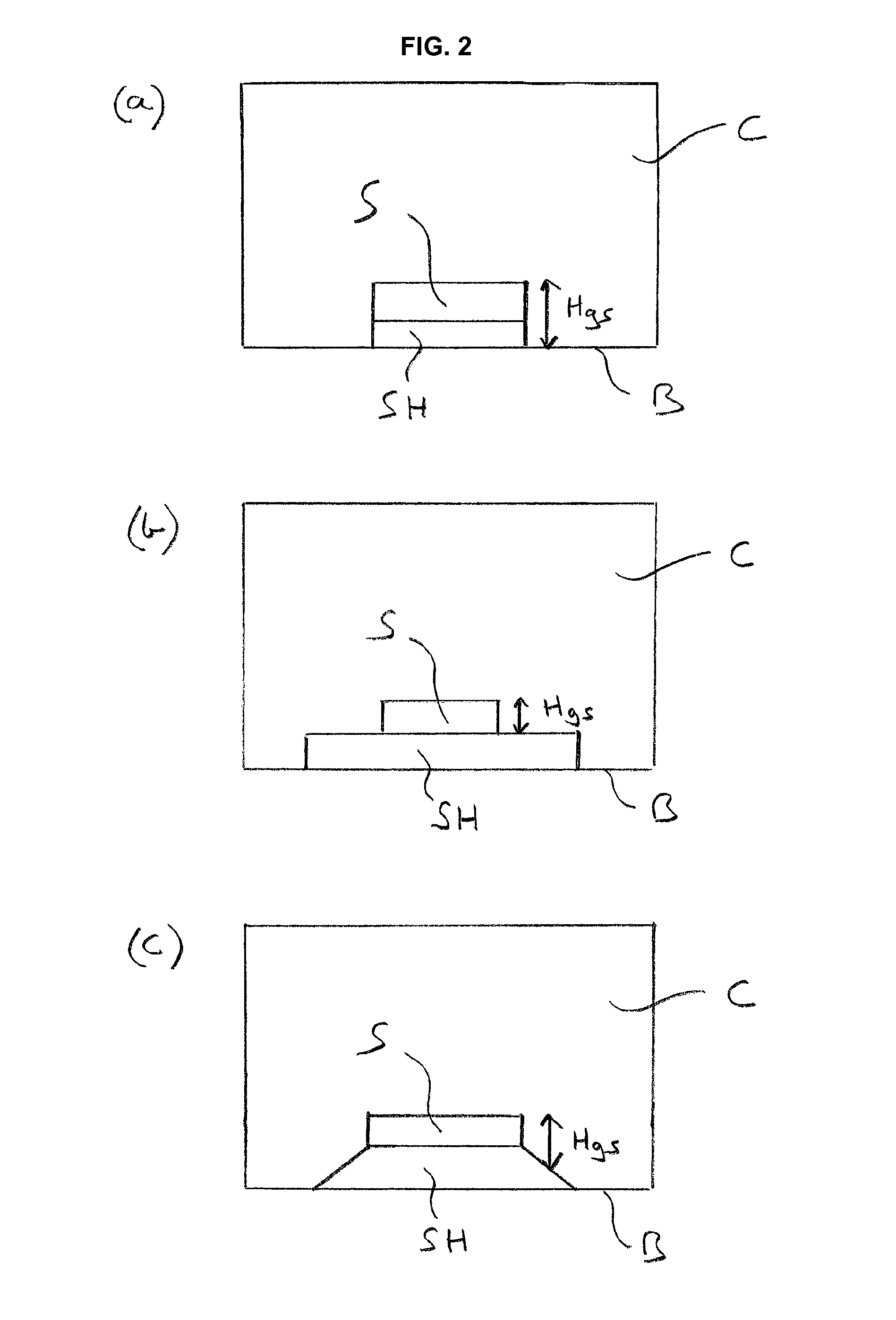Microwave plasma reactors and substrates for synthetic diamond manufacture
a technology of plasma reactor and substrate, which is applied in the direction of crystal growth process, polycrystalline material growth, transportation and packaging, etc., can solve the problems of dc arc plasma, disadvantages of electrode-based methods, and reliant on relatively expensive feed gases. cost in terms of kwh of energy that can be extracted
- Summary
- Abstract
- Description
- Claims
- Application Information
AI Technical Summary
Benefits of technology
Problems solved by technology
Method used
Image
Examples
Embodiment Construction
[0061]It is considered desirable to provide a microwave plasma reactor which is configured to form a uniform, large area plasma above a substrate in order to provide uniform CVD diamond growth over a large area of the substrate. Intuitively, one would expect that a microwave plasma reactor should be configured to support a uniform electric field above the substrate in order to form such a uniform plasma. The first aspect of the present invention is based on the seemingly counter-intuitive finding that a non-uniform electric field of a particular form can produce a more uniform plasma over a larger area than a corresponding uniform underlying electric field and that this can lead to more uniform CVD diamond growth over larger areas. In particular, the present inventors have found that it is preferable to form an electric field having an axisymmetric Ez profile comprising a substantially flat central portion bound by a ring of higher electric field, the substantially flat central port...
PUM
| Property | Measurement | Unit |
|---|---|---|
| frequency | aaaaa | aaaaa |
| microwave frequency | aaaaa | aaaaa |
| height | aaaaa | aaaaa |
Abstract
Description
Claims
Application Information
 Login to View More
Login to View More - R&D
- Intellectual Property
- Life Sciences
- Materials
- Tech Scout
- Unparalleled Data Quality
- Higher Quality Content
- 60% Fewer Hallucinations
Browse by: Latest US Patents, China's latest patents, Technical Efficacy Thesaurus, Application Domain, Technology Topic, Popular Technical Reports.
© 2025 PatSnap. All rights reserved.Legal|Privacy policy|Modern Slavery Act Transparency Statement|Sitemap|About US| Contact US: help@patsnap.com



